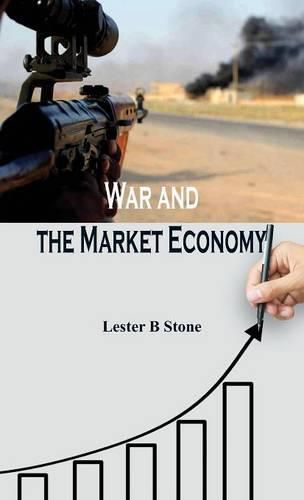Readings Newsletter
Become a Readings Member to make your shopping experience even easier.
Sign in or sign up for free!
You’re not far away from qualifying for FREE standard shipping within Australia
You’ve qualified for FREE standard shipping within Australia
The cart is loading…






This title is printed to order. This book may have been self-published. If so, we cannot guarantee the quality of the content. In the main most books will have gone through the editing process however some may not. We therefore suggest that you be aware of this before ordering this book. If in doubt check either the author or publisher’s details as we are unable to accept any returns unless they are faulty. Please contact us if you have any questions.
War has influenced economic history profoundly across time and space. Winners of wars have shaped economic institutions and trade patterns. Wars have influenced technological developments. Above all, recurring war has drained wealth, disrupted markets, and depressed economic growth. The role of war in the world economy is complex, yet pervasive. The shadow of war lies across economic history, influencing its pace and direction, and war continues to both shape economic developments and respond to them. The market economy involves peaceful cooperation. The division of labor cannot function effectively amidst a war. Warfare among primitive tribes did not suffer this drawback because the warring parties had not been engaged in trade before the hostilities. Thus they engaged in total war. Modern wars are won with materiel. Capitalist countries defeat their socialist rivals because private entrepreneurs are more efficient in churning out products, whether consumer goods during peacetime or weapons for their governments. Even so, ultimately war and the market economy are incompatible, as the market relies on peaceful cooperation. This concise and legible book will provide key text to all students, teachers and researchers.
$9.00 standard shipping within Australia
FREE standard shipping within Australia for orders over $100.00
Express & International shipping calculated at checkout
This title is printed to order. This book may have been self-published. If so, we cannot guarantee the quality of the content. In the main most books will have gone through the editing process however some may not. We therefore suggest that you be aware of this before ordering this book. If in doubt check either the author or publisher’s details as we are unable to accept any returns unless they are faulty. Please contact us if you have any questions.
War has influenced economic history profoundly across time and space. Winners of wars have shaped economic institutions and trade patterns. Wars have influenced technological developments. Above all, recurring war has drained wealth, disrupted markets, and depressed economic growth. The role of war in the world economy is complex, yet pervasive. The shadow of war lies across economic history, influencing its pace and direction, and war continues to both shape economic developments and respond to them. The market economy involves peaceful cooperation. The division of labor cannot function effectively amidst a war. Warfare among primitive tribes did not suffer this drawback because the warring parties had not been engaged in trade before the hostilities. Thus they engaged in total war. Modern wars are won with materiel. Capitalist countries defeat their socialist rivals because private entrepreneurs are more efficient in churning out products, whether consumer goods during peacetime or weapons for their governments. Even so, ultimately war and the market economy are incompatible, as the market relies on peaceful cooperation. This concise and legible book will provide key text to all students, teachers and researchers.